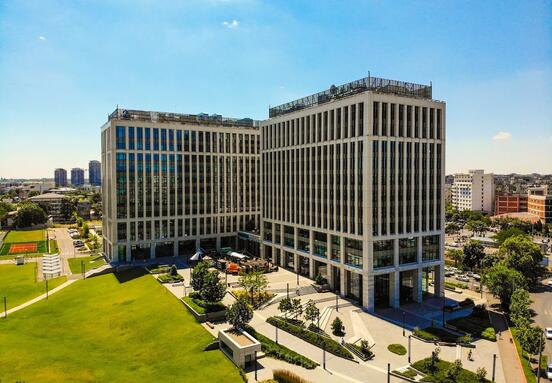The Romanian economy will register this year an increase of 2.5 percent, similar to that estimated for 2013, as the indicator is expected to pick up next year to 2.7 percent, says the World Bank’s newly-released Global Economic Prospects (GEP) report.
WB thus improved the estimations for 2013 and 2014 in the case of Romania, compared to last year’s edition of the report, but reduced the economic growth forecast for next year. WB anticipated last year for Romania an economic growth of 1.6 pc in 2013, 2.2 pc in 2014, respectively 3pc in 2015. PM Victor Ponta asked the ministers yesterday to set new targets for economic growth for 2014, claiming during the Government meeting that the data available by now reveal that 2013 was the best economic year after 2008 at least.
In his turn, the minister of Budget, Liviu Voinea said Tuesday in an interview with Bloomberg quoted by Mediafax, during a conference held by Euromoney in Vienna, that the economic growth of Romania last year was probably “closer” to 3 pc, higher than the government estimation, driven by the recovery of consumption in Q4. “After the first nine months, we had an increase of 2.7 pc, while at the end of the year it will stand between 2.5 pc and 3 pc. If we had a recovery of consumption, and we have reasons to believe this was the case, especially in December, then we can go closer to 3 pc,” Voinea mentioned. The economy went up 4.1 pc in the third quarter, the fastest advance of the last two years, driven by exports and a good agricultural harvest.
Premier Ponta last week announced that Romanian ended 2013 with a budget deficit of 2.5 pc of the GDP and an economic growth of 2.7 pc, above the forecast value. For last year, the government, IMF and the European Commission predicted an economic increase of 2.2 pc, against a more cautious initial forecast of 1.6 pc. For this year, the government and the international financial institutions anticipate a growth of 2.1-2.2 pc of the GDP.
WB warns in the GEP for 2014 that the abrupt reduction of liquidity programmes conducted by the central banks of developed states could generate shocks for emerging economies, especially in relation to a possible powerful contraction of capital flows.
WB warns that capital flows toward emerging markets might diminish by as much as 80 pc in such a situation, thus significantly affecting economic growth and generating financial crises in some countries. The international financial institution improved the global economic forecast to 3.2 pc this year, up from 2.4 pc in the 2013 report, mainly due to the recovery of developed economies, with a strong acceleration of the economic increase in the USA and with positive, though modest evolutions in the euro zone and Japan. (source: nineoclock.ro)






